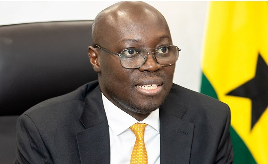Ahead of Finance Minister Dr. Cassiel Ato Forson presenting the Mahama administration’s maiden budget to parliament on March 11 – following the latter’s approval of a GHȼ68billion mini-budget in January to cover government expenditures for first quarter of the year, fiscal prudence appears to be the watchword.
Economists and financial analysts have noted that maintaining strict fiscal discipline is essential to restoring macroeconomic stability and fostering sustainable growth.
An economist at GCB Bank, Courage Boti, expressed the need for government adherence to its fiscal consolidation path in view of existing commitments under the International Monetary Fund (IMF) programme.
Already, President John Dramani Mahama has affirmed his administration’s commitment to the US$3billion IMF Extended Credit Facility arrangement; stating that while the country does not intend to exit the programme or immediately seek to extend it, he does not rule out the possibility of making adjustments to better-reflect local realities.
Meanwhile, the IMF has set a borrowing cap for the country – limiting external loans to a maximum of US$250million for 2025. The restriction is part of a memorandum of understanding with the Official Creditor Committee, designed to prevent excessive debt accumulation and encourage fiscal responsibility.
In alignment with these fiscal constraints, government has demonstrated its commitment to financial obligations by disbursing GH¢6.081billion on February 17, 2025 to bondholders under the Domestic Debt Exchange Programme, as it endeavours to uphold investor trust and maintain market stability.
However, the Institute of Economic Affairs (IEA) – a policy think-tank – has called for the 2025 budget to include a comprehensive strategy addressing the energy sector’s mounting legacy debt. Addressing perennial losses by one of the most significant players, Electricity Company of Ghana (ECG), is deemed crucial for restoring financial sustainability and ensuring long-term economic health.
The upcoming budget is expected to serve as a credible roadmap for the nation’s economic transformation, balancing ambition with fiscal responsibility.
Last week, the cedi showed a mixed performance with some weakness in bank-to-bank trading due to limited foreign currency availability. Databank’s market analysis shows that the cedi is expected to maintain its current position – with trading likely to stay between GH¢15.5 and 15.7 to the dollar through the week, helped by moderate business demand.










